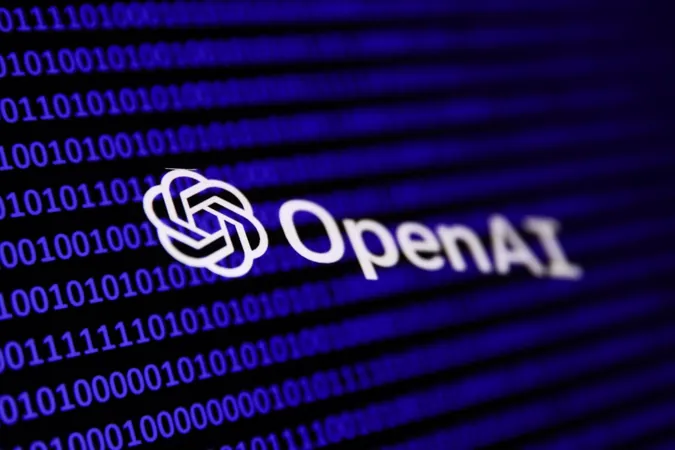
Tragic Passing of OpenAI Whistleblower at Just 26: A Closer Look at Suchir Balaji's Legacy and Concerns
2024-12-14
Author: Ying
Tragic Passing of OpenAI Whistleblower at Just 26
In a heartbreaking turn of events, Suchir Balaji, a former employee of OpenAI, was discovered dead in his San Francisco apartment on November 26. The San Francisco Office of the Chief Medical Examiner has confirmed that the 26-year-old AI researcher died by suicide. Balaji had previously raised significant concerns regarding OpenAI's practices, particularly its use of copyrighted material without proper licensing, which he asserted might be detrimental to the integrity of the internet.
Background of Suchir Balaji's Career
Balaji's resignation from OpenAI came after nearly four years of service, during which he worked on various projects including ChatGPT and WebGPT, a model that could search the web. He candidly shared his views on copyright issues during an interview with The New York Times in October, where he voiced concerns about the legality of generative AI technologies leveraging data without adequate fair use justification.
Industry Response and Concerns Raised
In a poignant statement, an OpenAI spokesperson expressed their sorrow over Balaji's passing, extending condolences to his friends and family. The San Francisco Police Department confirmed that no signs of foul play were detected during their initial investigation, and Balaji's untimely death has led to an outpouring of grief from the AI community.
Legal Context and Implications
Adding to the somber narrative, just a day before Balaji's death, he was identified in a court case against OpenAI, which is embroiled in ongoing litigation from media companies alleging copyright infringements. This lawsuit notably includes the New York Times, emphasizing the intense scrutiny generative AI companies face regarding their data practices.
Educational Background and Ethical Concerns
Before his tenure at OpenAI, Balaji studied computer science at the prestigious University of California, Berkeley, where he laid the groundwork for his concerns about ethical AI practices and copyright laws. His insight into these issues reflects a growing unease among many in the tech industry, with several former colleagues also expressing alarm over the safety culture and ethical implications at OpenAI.
Balaji's Legacy in AI Discussion
Balaji’s comments highlighted the broader implications of the work done by companies like OpenAI and Microsoft, who are at the forefront of generative AI technology but must navigate a complex landscape of copyright and ethics. His tragic end serves as a stark reminder of the personal toll that such pressures can exact on individuals grappling with the contentious intersection of innovation and legal compliance.
Looking Ahead: The Future of AI and Ethics
As the stories of AI developers and researchers continue to unfold, Balaji's legacy will likely resonate within discussions about the future of artificial intelligence—both in terms of its potential and its pitfalls.

 Brasil (PT)
Brasil (PT)
 Canada (EN)
Canada (EN)
 Chile (ES)
Chile (ES)
 España (ES)
España (ES)
 France (FR)
France (FR)
 Hong Kong (EN)
Hong Kong (EN)
 Italia (IT)
Italia (IT)
 日本 (JA)
日本 (JA)
 Magyarország (HU)
Magyarország (HU)
 Norge (NO)
Norge (NO)
 Polska (PL)
Polska (PL)
 Schweiz (DE)
Schweiz (DE)
 Singapore (EN)
Singapore (EN)
 Sverige (SV)
Sverige (SV)
 Suomi (FI)
Suomi (FI)
 Türkiye (TR)
Türkiye (TR)